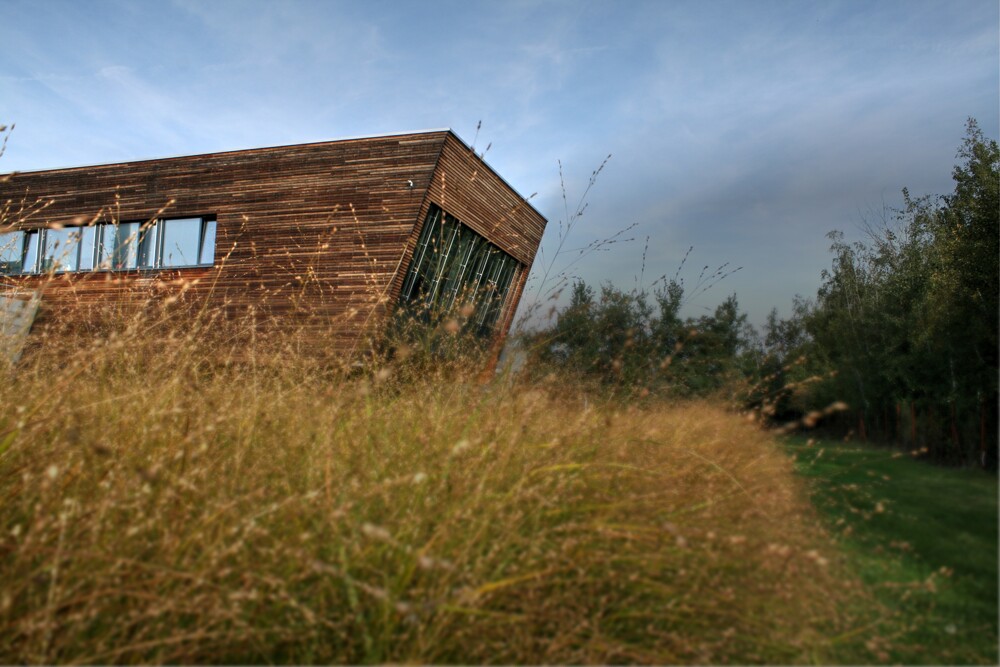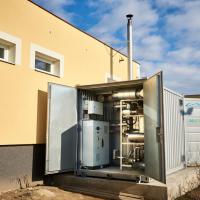

The WAVE micro power plant has proven itself in severe operation. Based on positive experiences, its creators from the University Center for Energy Efficient Buildings of CTU are now preparing to start small-scale production. It will be launched on the market by Damgaard Consulting.
Compared to other boilers, the WAVE micro power plant is currently the only available device, the purchase of which will pay for itself over the lifetime due to energy savings. "Ultimately, users will have heat and electricity only for the price of fuel", says Jakub Maščuch, head of the creative team. That these are not just empty promises was proved by the heavy traffic in Mikolajice in the Opava region, where the facility supplies heat and electricity to the municipal office, shop and fire station. Wood pellets are used as fuel, but after modifications, wood chips of lower quality are also fine.
In addition, the WAVE micro power plant can also operate independently of the distribution network, has a number of automated functions and is practically maintenance-free. This is also confirmed by the words of the mayor of Mikolaj, Martin Krupa: "I consider one of the main advantages to be that, thanks to automation, the need for the presence of an operator has been reduced to almost zero. In addition, it is a self-sufficient system that does not depend on the supply of electricity from the distribution network. This fact was positively received mainly by the fire department. Another significant effect is minimal emissions, which contributes to the improvement of the winter air in the village."
After ten years of development, the results of the pilot testing met the expectations of the implementation team. Its manager, Jakub Maščuch, said: "The micro power plant reaches the limit of 80% overall operational efficiency. Authorized emissions measurement confirmed the achievement of limits meeting the requirements for Ekodesign, which all boilers will have to meet from 2020. In addition, boiler subsidies can be drawn on devices that already meet the requirements."
As a next step, CTU is therefore preparing UCEEB in cooperation with Damgaard Consulting the start of small-scale production of a more powerful version of the device, which will reach 120 kW of thermal and 6 kW of electrical power and will bring significantly better economic efficiency.